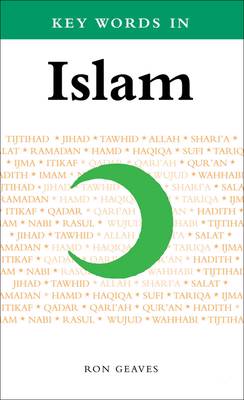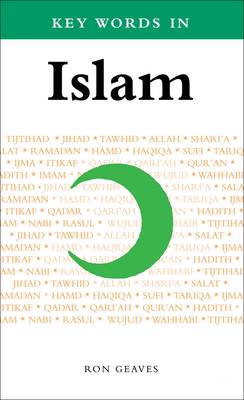
- Retrait gratuit dans votre magasin Club
- 7.000.000 titres dans notre catalogue
- Payer en toute sécurité
- Toujours un magasin près de chez vous
- Retrait gratuit dans votre magasin Club
- 7.000.0000 titres dans notre catalogue
- Payer en toute sécurité
- Toujours un magasin près de chez vous
Description
Daily political events and the steady inevitability of globalism require that informed students and citizens learn something about religious traditions foreign to their own. Designed for both classroom and general use, these handy Key Words guidebooks are essential resources for those who want clear and concise explanations of common terms and unfamiliar concepts of major world religions.
Each pocket-sized volume contains definitions for over 400 terms from religious principles and significant periods to noteworthy figures.
A quick sampling of terms from this volume:
AhwalDa'waHajjIzzatMadrasaRamadanShari'aWatanZakat
Sample Definitions:
Izzat (Urdu) The concept of honour or family pride. Izzat functions as an eclectic mixture of Islamic codes and local customs which the family members are expected to observe. Non-observance leads to disgrace for the individual and the family.
Ramadan/Ramazan (U) The ninth month of the Muslim year which is observed as a fast lasting from sunrise to sunset. The fast is one of the five pillars of Islam and during this period Muslims should abstain from food, water and sexual activity. The fast is commanded by Allah in the Qur'an and is therefore obligatory for all adult Muslims except in special circumstances such as illness or menstruation. In such circumstances it is permissible to make up the period of the fast at a later date. The period of Ramadan includes some of the holiest occasions of the Muslim year such as the Night of Power that marks the first revelation of the Qur'an to Muhammad. The fast ends with the festival of Eid al-Fitr. The month of Ramadan is a period of extra religious sensitivity and many Muslims who are not usually observant will attend the mosque and perform their prayers five times a day. The fast provides an opportunity to reflect on religious matters and pass a month in prayer but is also considered to be a means of creating empathy for the poor and needy in the community (see itikaf, Eid al-Fitr, Laylat ul-Qadr).
Spécifications
Parties prenantes
- Auteur(s) :
- Editeur:
Contenu
- Nombre de pages :
- 122
- Langue:
- Anglais
Caractéristiques
- EAN:
- 9781589011243
- Date de parution :
- 01-07-06
- Format:
- Livre broché
- Format numérique:
- Trade paperback (VS)
- Dimensions :
- 128 mm x 176 mm
- Poids :
- 131 g

Les avis
Nous publions uniquement les avis qui respectent les conditions requises. Consultez nos conditions pour les avis.






